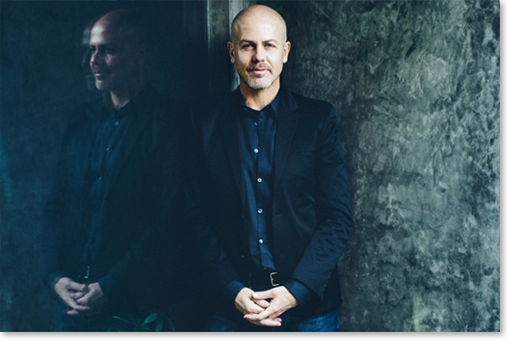Italo Zucchelli: David, I’ve been your longtime fan for all my life. What you’ve said about meditation, it was all very beautiful, and I’ve read your book many times. But what really touched me and intrigued me was the fact that you have this aesthetic based on disturbing elements—let’s describe it like that. It’s not peaceful. Which is what I always loved about your work. [But] how you explained, “In order to do this [unhappy work], you don’t have to be unhappy.” That was really for me one of the reasons I was attracted to doing this, talking about this with you.
DL: The bottom line is, the artist doesn’t have to suffer to show suffering. I think artists want this edge, and they think anger and depression and angst will serve their work. In a way, it’s sort of true. But I’ve found out that anger occupies the mind. And common sense tells you, if you’re filled with anger, there’s less room for creativity, and real anger is a poison to the human being and the environment. People don’t like being around really angry people. So it doesn’t really serve the work. Negativity is the enemy of creativity. What I say is you should understand anger. You should understand depression. It’s like they say: You don’t have to die to do a death scene.
I know that there are skeptics out there. How does Transcendental Meditation work?
DL: People say it’s like Coca-Cola light—if it’s so easy and effortless, it may just be a Mickey Mouse meditation. That is what they call baloney. This [TM] is a blessing. The mantra you get in TM is like a law of nature, designed for a specific purpose, and that purpose is to turn the awareness from outside, 180 degrees to within. Once you’re pointed within, you will naturally and easily and effortlessly dive, because each deeper level has more happiness. Then you’ll go through intellect. Each deeper level of intellect has even more happiness. And then you’re going to transcend, champ, because the unbounded ocean is infinite! Unbounded happiness! You’ll wish you could stay there. You’ll pop out with thoughts, and you’ll dive again. And it’s so beautiful.
Maybe you can both describe how you take these realizations and transform them into your work, whether it’s a fashion collection or a song or an album or a film.
IZ: In my case, I have to say, it has so many implications. It guided me to create, for example—and this is very important to me—a setup with my team, with the people I work with, that is happy. I have fun every day. The people who work with me work with me for twelve years, nine years, [because] we are in fun, we’re here together. When you do a creative thing, it’s so important, because then people will give you 100 percent. When you’re working in an atmosphere that is conducive to being creative, to creating things—fashion thrives on that. I have to say, a lot of people that come to my office, the first thing they say is, “My God, this office has such a great energy!”
David, does that dovetail with your experience?
DL: Well, sure. I remember being at a business conference. Many businesses run their business on fear; they think fear motivates people, and they emphasize competition, and the employees feel that their job is pretty much 24-7 in jeopardy, and they live under this fear. They take that fear home, so their wife or husband catch it, and the little kids in the house feel it. It’s like introducing this poison at work that spreads to other places. And then people are more apt to get sick and not sleep well at night. It’s a downward spiral. Common sense tells you that if your employees are happy, they’re going to be more productive and have more ideas and go with you the extra mile. The other way, you’re fueling a kind of hatred for your workplace, and sometimes employees….
When you look at works of yours that you’ve made, before you discovered TM and after, do they strike you as different?
DL: Not really. The thing is how I was while I was doing them, and that is a magical thing for me to think about. Looking back, I can see myself as weak, unsure, not self-assured, filled with worries and doubts. I wasn’t depressed, but I was melancholy at times. And I was filled with this anger, so that I was on shaky ground. This business can kill people. You need what you can get from the transcendent to make it through.
IZ: In fashion, [too]. I know it very well.
DL: It’s brutal! No one’s having fun!
IZ: No. The pressure, especially at this level, the bitchiness…. You’re always judged, constantly, what you do is constantly judged. Sometimes fairly, sometimes unfairly. And you transcend it, again. That’s a very good place to be. It makes you live every day in a different way, and cope. Not only cope, but be inspired, even by criticism. You take something from it to inspire you.
——————————–
To view the complete article at Style.com, go to: http://www.style.com/trendsshopping/stylenotes/122313_David_Lynch_Italo_Zucchelli_Calvin_Klein/




